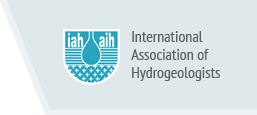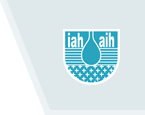Working Group: Economics of MAR
Leader
Andrew Ross (Australian National University, Canberra, Australia) a.ross@anu.edu.au
Objectives
- to document the financial costs and economics of MAR in relation to alternative water supplies or storages; and
- to provide information on the value of investing in MAR, and identify scenarios where MAR may produce the least cost water supply and other benefits.
Outputs
The program of the working group is being developed in two stages:
Stage 1: 2016-18
Collection & analysis of financial (cost) data for selected MAR schemes. A standard framework was developed for analysing financial costs of MAR, and data for 21 MAR schemes in 6 countries was collected and analysed and reported in:
- Ross, A and Hasnain, S (2018) Factors affecting the cost of managed aquifer recharge schemes. Sustainable Water Resources Management 4 (2):179-190. https://doi.org/10.1007/s40899-017-0210-8
- Further paper in preparation including larger number of schemes
Stage 2: 2018-2025
Cost effectiveness and cost benefit analysis of selected MAR schemes
- Cost effectiveness analysis of specific cases–To provide further information about the competitiveness of MAR compared with other techniques
- Development of methods for estimating benefits of MAR
- Analysis of benefits and costs from specific cases–To provide further insights on the value and benefits of MAR
- Zheng Y, Ross A, Villholth KG, Dillon PJ, editors. 2021 Managing aquifer recharge: a showcase for resilience and sustainability. Paris: UNESCO
- Ross A. 2022 Benefits and Costs of Managed Aquifer Recharge: Further Evidence. Water 2022, 14, 3257.
Stage 3: 2025 onwards
Current and future activities
- 2025: ISMAR 12: workshop on avoiding MAR scheme failure with international examples
- 2025-2027 economic analysis of water banking in the Murray Darling Basin Australia
Possible additional future activities
- Economic values of MAR (different purposes, benefits, scales, users), economic viability of MAR (quantitative and qualitative evaluation), incentives for MAR
In January 2019, UNESCO agreed to produce a booklet on Exemplary MAR case studies, through the combined efforts of this Working Group, the MAR for Sustainable Development Working Group, GRIPP and IGRAC.
How to contribute
Volunteers are needed to furnish financial and economic information on MAR schemes to enable robust and locally relevant data and information. This information may also be useful to MAR for Sustainable Development Working Group, and selected data may be mounted on the Global MAR Inventory site. Many thanks to members who have contributed information and case studies.
Further information and case studies about success of MAR schemes and challenges in MAR scheme preparation and/or implementation are welcome. Please contact Andrew Ross a.ross@anu.edu.au if you can help.
History of Working Group and Outcomes
At ISMAR8 Andrew Ross of ANU (Australia), David Pyne (USA), Enrique Fernandez (Spain), Gerd Cachandt (UK), Friedemann Scheibler (NL) and Bob Bower (NZ) met to discuss collaborative work on the economics of MAR. Bob Maliva (USA) and Peter Dillon (Aust) subsequently also contributed.
The discussion in Beijing suggested two initial priorities for work by the group;
- development of a standard framework and measures for accounting the costs (and benefits) of aquifer storage and recovery. The (levelised) unit cost of water is one appropriate measure for comparing alternative sources of regular water supply, whereas the unit cost of recovery capacity is a measure for a reserve supply that is only used occasionally; and
- compilation of a set of case studies that include financial and economic analysis of aquifer storage and recovery.
Following ISMAR 8 Sharon Megdal University of Arizona, Tucson, USA and Peter Dillon, CSIRO, Australia, edited a thematic issue of the open access MDPI Journal Water entitled Policy and Economics of Managed Aquifer Recharge and Water Banking. Fourteen papers, most of which were presented at ISMAR9 may be downloaded, and are also available as a book from the MDPI Water website.


